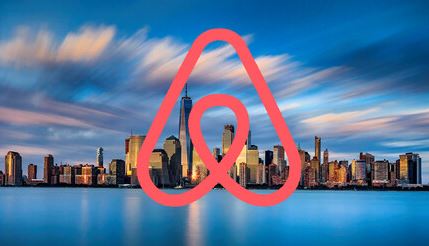New York’s Airbnb Ban Intensifies Accommodation Crunch This Holiday Season

New York City’s recent crackdown on Airbnb and other short-term rental services is creating a significant impact on accommodation availability, particularly as the holiday season approaches. The new regulations, which effectively make most private short-term rentals illegal, mark a dramatic shift from what was once one of the most relaxed approaches to short-term rentals to one of the strictest in the country.
Prior to these changes, Airbnb boasted approximately 38,500 ‘non-hotel’ listings in New York as of January 2023. However, since August 21, 2023, the company has been compelled to halt reservations for hosts unable to provide a city registration number. This drastic reduction in available Airbnb listings comes at a time when New York City’s tourism sector is booming, with expectations of over 63 million travelers in 2023 and hotel occupancy rates nearing 90% each night.
The implications of these restrictions are multifaceted and largely detrimental to visitors. The first two months following the implementation of these rules have witnessed a noticeable decrease in accommodation options across fewer neighborhoods. Concurrently, there has been a rise in hotel room rates, a predictable outcome given the reduced competition and increased demand. Furthermore, there’s a notable trend of underground activity, with a surge in unregistered listings appearing on unregulated platforms, as the legal avenues for short-term rentals dwindle.
This scenario poses challenges not just for tourists but also for the city’s hospitality landscape. With limited Airbnb options, visitors are facing higher costs and fewer choices, potentially affecting the overall appeal of New York City as a tourist destination. The timing of these changes coincides with the holiday season, traditionally a peak period for travel and tourism, exacerbating the accommodation crunch.
The ban’s impact extends beyond just the visitors and the hospitality industry. It reflects a broader trend of major cities grappling with the balance between tourism, local housing markets, and the regulation of short-term rental platforms. New York City’s stringent approach signifies a significant shift in policy, likely to influence future regulatory decisions in other urban centers facing similar challenges.
The holiday season, usually a time of high demand for accommodations, is thus marked by uncertainty and limited options for many travelers to New York City this year. The full impact of these regulations on the city’s tourism and economy will be more apparent as the effects of the ban unfold over the coming months.





